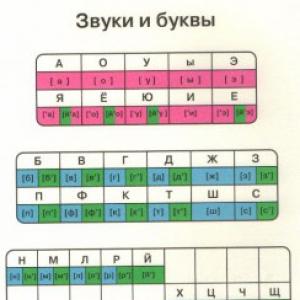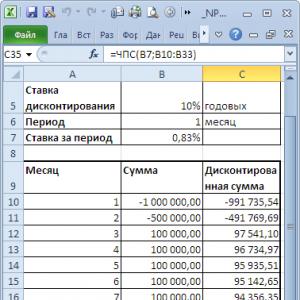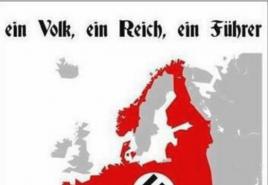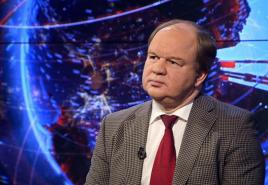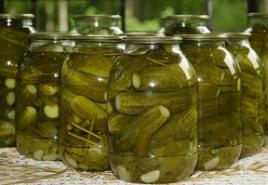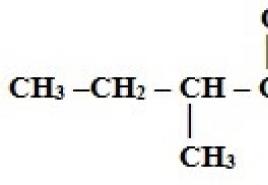The Bryansk special forces soldier saved the soldiers at the cost of his own life. The Bryansk special forces soldier saved the soldiers at the cost of his own life. Having taken refuge in one of the rooms, the group blocked the smoke-filled corridor. By order of the OBG commander, Myasnikov organized the evacuation of the wound under fire
M Yasnikov Mikhail Ivanovich – deputy commander of the tank battalion of the 63rd tank brigade of the Primorsky Army of the 4th Ukrainian Front, senior lieutenant.
Born on November 21, 1922 in the village of Kolpny (now a village in the Oryol region) in a peasant family. Russian. Member of the CPSU since 1945. Graduated from 10th grade of high school.
In the Red Army since 1939. Served on the Western Border. In June 1941, Myasnikov was a cadet in the driver course of the Belarusian Border District, stationed in the Brest Fortress.
On June 22 at 4 o’clock in the morning, Myasnikov was on patrol at the Terespol fortification of the Brest Fortress in the area of the railway bridge over the Bug. The Marines were the first to look war in the face. The border guards greeted the appearance of the enemy with friendly rifle and machine-gun fire. Numerous attempts by the enemy to land troops on June 22 in the area defended by border guards were initially unsuccessful. The soldiers courageously repulsed the enemy's onslaught and repeatedly launched bayonet attacks. Until June 30, 1941, Lieutenant Zhdanov’s group (initially about 80 border guards), which included Myasnikov, was in continuous battle and used up almost all of its available ammunition.
On June 30, only 18 fighters moved to the Citadel (Central Island of the Brest Fortress). Myasnikov fought in the Citadel until July 5, 1941. With a group of fighters, he managed to get out of the fortress. We walked through the Polesie swamps at night. By the evening of July 10, Myasnikov and two comrades reached the Pripyat River southeast of Pinsk, but by this time our troops had already left the city. Only a month after the start of the war, on July 22, 1941, in the area of the city of Mozyr, three border guards crossed the front line, coming under enemy fire, as a result of which Myasnikov was wounded a second time. After first aid was provided, he was immediately sent to the hospital.
After the hospital, Myasnikov was sent to the Oryol Armored School, from which he graduated in August 1942. He was appointed commander of a tank platoon. Defended the city of Maykop and the village of Khadyzhenskaya. In the fall of 1942, he took part in the battles in the Tuapse direction.
In February 1943, Senior Lieutenant Myasnikov, as part of the 563rd separate tank battalion, fought on Malaya Zemlya near Novorossiysk. There he was wounded and again ended up in the hospital. For courage and valor shown in the battles on Malaya Zemlya, Myasnikov was awarded the first Order of the Red Star.
After his recovery in the fall of 1943, as part of the 63rd Tank Brigade, Myasnikov participated in the breakthrough of the Blue Line and the liberation of the Taman Peninsula, for which he was awarded the Order of the Patriotic War, 1st degree.
After capturing bridgeheads on the coast of the Kerch Peninsula, the tank brigade, in which senior lieutenant Myasnikov fought, crossed over to Crimea and participated in the liberation of the city of Kerch.
In April 1944, a new offensive of Soviet troops began in Crimea. The deputy commander of a tank battalion, Senior Lieutenant Myasnikov, fought along the entire southern coast of Crimea, participating in the liberation of the cities of Sudak, Alushta, and Yalta. By May 1944, troops of the 4th Ukrainian Front approached the Nazis' Sevastopol defensive region.
On May 7, 1944, during the assault on Sapun Mountain, when the battalion commander’s tank caught fire and he himself was seriously wounded, Senior Lieutenant Myasnikov took command of the battalion. Acting harmoniously, boldly and decisively, the tankers broke into Sevastopol. Myasnikov was the first to break through to Kamyshovaya Bay, blocking the Nazis’ path to retreat. He was wounded in a defensive battle, but continued to lead the battalion until the end of the battle. The tank battalion destroyed 64 field guns, 9 assault guns, more than 300 Nazis and captured 2,000 German soldiers and officers. On May 9, 1944, Sevastopol was cleared of the enemy.
U Kaz of the Presidium of the Supreme Soviet of the USSR dated March 24, 1945 for the exemplary performance of combat missions of the command on the front of the fight against the Nazi invaders and the courage and heroism shown to the senior lieutenant Mikhail Ivanovich Myasnikov was awarded the title of Hero of the Soviet Union with the Order of Lenin and the Gold Star medal (No. 3709).
After the hospital, Myasnikov was sent to the Baltic states. Participated in the liberation of Lithuania and Latvia. The war ended on May 12, 1945, when the Nazi group, pinned to the sea, capitulated on the Courland Peninsula.
After the war, M.I. Myasnikov continued to serve in the army. Since 1975, Colonel M.I. Myasnikov has been retired. Lived in the city of Dnepropetrovsk. He was a frequent visitor to the cities of Sevastopol and Brest. He did a lot of military-patriotic work among young people. Died on July 25, 2005. He was buried in Dnepropetrovsk on the Alley of Heroes of the Zaporozhye Cemetery.
Awarded the Order of Lenin, 2 Orders of the Patriotic War, 1st degree, 2 Orders of the Red Star, and medals. Honorary citizen of the city of Dnepropetrovsk (1995).
A bust of the Hero was installed in the village of Kolpny, Oryol region.
, Oryol Region
USSR USSR
Mikhail Ivanovich Myasnikov(-) - Colonel of the Soviet Army, participant in the Great Patriotic War, Hero of the Soviet Union ().
Biography
After the end of the war, Myasnikov continued to serve in the Soviet Army. In 1975, with the rank of colonel, he was transferred to the reserve. Lived in Dnepropetrovsk. He was actively involved in social activities.
Honorary citizen of Dnepropetrovsk. He was also awarded two Orders of the Patriotic War, 1st degree, two Orders of the Red Star, and a number of medals.
A bust was erected in Myasnikov's honor in his hometown.
Write a review of the article "Myasnikov, Mikhail Ivanovich"
Notes
Literature
- Heroes of the Soviet Union: A Brief Biographical Dictionary / Prev. ed. collegium I. N. Shkadov. - M.: Military Publishing House, 1988. - T. 2 /Lyubov - Yashchuk/. - 863 p. - 100,000 copies. - ISBN 5-203-00536-2.
- Kazaryan A. A. Heroes of the battles for Crimea. Simferopol, 1972.
- Smirnov S.S. Brest Fortress. Moscow: Raritet, 2000.
Excerpt characterizing Myasnikov, Mikhail Ivanovich
Alpatych seemed to nod his head approvingly at these words and, not wanting to know anything more, went to the opposite door - the master's door of the room in which his purchases remained.“You are a villain, a destroyer,” shouted at that time a thin, pale woman with a child in her arms and a scarf torn from her head, bursting out of the door and running down the stairs to the courtyard. Ferapontov followed her and, seeing Alpatych, straightened his vest and hair, yawned and entered the room behind Alpatych.
- Do you really want to go? - he asked.
Without answering the question and without looking back at the owner, looking through his purchases, Alpatych asked how long the owner was supposed to stay.
- We'll count! Well, did the governor have one? – Ferapontov asked. – What was the solution?
Alpatych replied that the governor did not tell him anything decisive.
- Are we going to leave on our business? - said Ferapontov. - Give me seven rubles per cart to Dorogobuzh. And I say: there is no cross on them! - he said.
“Selivanov, he got in on Thursday and sold flour to the army for nine rubles a sack.” Well, will you drink tea? - he added. While the horses were being pawned, Alpatych and Ferapontov drank tea and talked about the price of grain, the harvest and favorable weather for harvesting.
“However, it began to calm down,” said Ferapontov, drinking three cups of tea and getting up, “ours must have taken over.” They said they won't let me in. This means strength... And after all, they said, Matvey Ivanovich Platov drove them into the Marina River, drowned eighteen thousand, or something, in one day.
Alpatych collected his purchases, handed them over to the coachman who came in, and settled accounts with the owner. At the gate there was the sound of wheels, hooves and bells of a car leaving.
It was already well after noon; half the street was in the shade, the other was brightly lit by the sun. Alpatych looked out the window and went to the door. Suddenly a strange sound of a distant whistle and blow was heard, and after that there was a merging roar of cannon fire, which made the windows tremble.
Alpatych went out into the street; two people ran down the street towards the bridge. From different sides we heard whistles, impacts of cannonballs and the bursting of grenades falling in the city. But these sounds were almost inaudible and did not attract the attention of residents in comparison with the sounds of gunfire heard outside the city. It was a bombardment, which at five o'clock Napoleon ordered to open on the city, from one hundred and thirty guns. At first the people did not understand the significance of this bombing.
The sounds of falling grenades and cannonballs aroused at first only curiosity. Ferapontov’s wife, who had never stopped howling under the barn, fell silent and, with the child in her arms, went out to the gate, silently looking at the people and listening to the sounds.
The cook and the shopkeeper came out to the gate. Everyone with cheerful curiosity tried to see the shells flying over their heads. Several people came out from around the corner, talking animatedly.
- That’s power! - said one. “Both the lid and the ceiling were smashed into splinters.”
“It tore up the earth like a pig,” said another. - That’s so important, that’s how I encouraged you! – he said laughing. “Thank you, I jumped back, otherwise she would have smeared you.”
The people turned to these people. They paused and told how they got into the house near their core. Meanwhile, other shells, now with a quick, gloomy whistle - cannonballs, now with a pleasant whistling - grenades, did not stop flying over the heads of the people; but not a single shell fell close, everything was carried over. Alpatych sat down in the tent. The owner stood at the gate.
- What haven’t you seen! - he shouted at the cook, who, with her sleeves rolled up, in a red skirt, swaying with her bare elbows, came to the corner to listen to what was being said.
M Yasnikov Mikhail Anatolyevich – employee of Directorate “B” (Vympel) of the Special Purpose Center of the Federal Security Service of the Russian Federation, lieutenant colonel.
Born on April 23, 1975 in the city of Seltso, Bryansk region. Russian. In 1992 he graduated from secondary school No. 2 in the city of Seltso.
In 1996, he graduated with honors from the Golitsyn Higher Military Border Military-Political School (now the Golitsyn Border Institute of the FSB of Russia). After graduating from college, he submitted a report on being sent to the North Caucasus. His request was granted. Lieutenant M.A. Myasnikov underwent special training in a mountain camp in one of the high-mountainous places in Europe, repeatedly climbed Elbrus and, when he began service, already had the qualification of a master of sports in rock climbing.
He first served as the head of a border outpost in the Republic of Dagestan, then was transferred to the outpost in the Chechen Republic. After serving for five years, having withstood the most severe competition, he realized his cherished dream - he became an employee of Directorate “B” (Vympel) of the Special Purpose Center of the FSB of Russia.
On September 1, 2004, school No. 1 in the city of Beslan (Republic of North Ossetia-Alania) was captured by terrorists; 1,128 people (mainly children, as well as their parents and school staff) were taken hostage. On the same day, M.A. Myasnikov arrived in Beslan with the Vympel group. After explosions occurred at the school on the third day, causing a fire and the collapse of part of the walls through which the hostages began to scatter, he, as part of an assault group, received an order to storm the building. Through their actions, the group ensured the destruction of all bandits who were on the premises.
As a result, most of the hostages were freed during the assault, however, the total loss count as a result of the terrorist attack was more than 330 people killed (of which 186 were children, 17 were teachers and school staff, 118 were relatives, guests and friends of students) and over 700 people injured. The number of special forces soldiers who died during the storming of the building is not known for certain and, according to different versions, varies from 10 to 16. According to some estimates, over 20 soldiers died. On the monument to special forces members (who died during the storming of the school), installed at the City of Angels memorial cemetery in Beslan, 10 names are carved.
Died on December 6, 2008 in one of the special operations in the North Caucasus. Trying to save his comrades, M.A. Myasnikov, without hesitation for a second, stepped forward and covered the grenade with himself. Thanks to his courage and heroism, no one was hurt.
He was buried at the Nikolo-Arkhangelskoye cemetery in Moscow.
U Order of the President of the Russian Federation (“closed”) dated February 3, 2009 for courage and heroism shown during the performance of a special task, Lieutenant Colonel Myasnikov Mikhail Anatolyevich awarded the title of Hero of the Russian Federation (posthumously).
The special distinction of the Hero of the Russian Federation - the Gold Star medal (No. 938) was awarded to his parents - Anatoly Ivanovich and Tatyana Nikolaevna Myasnikov.
Lieutenant colonel. Awarded the Order of Courage, medals, including “For Courage” and Suvorov.
His name was given to secondary school No. 2 in the city of Seltso, where he studied. In 2009, a memorial plaque was installed in the school building in his honor.
Mikhail Anatolyevich Myasnikov(1975-2008) - Lieutenant Colonel of the FSB of the Russian Federation, Hero of the Russian Federation (2009).
Biography
Mikhail Myasnikov was born on April 23, 1975 in the city of Seltso, Bryansk region. He graduated from high school, after which he entered the Golitsyn Higher Military Border Military-Political School, which he graduated in 1996. He underwent special training in the North Caucasus and became a master of sports in rock climbing. Initially, he served as the head of border outposts in Dagestan and Chechnya, then joined the Directorate “B” (“Vympel”) of the Special Purpose Center of the Federal Security Service of the Russian Federation.
As part of the Vympel group, Myasnikov actively participated in the release of hostages captured in school No. 1 in the city of Beslan on September 1, 2004. On December 6, 2008, during another special operation in the North Caucasus, Myasnikov covered a grenade thrown by militants with himself, preventing the death of his comrades at the cost of his life. He was buried at the Nikolo-Arkhangelskoye cemetery in Moscow.
By a closed Decree of the President of the Russian Federation dated February 3, 2009, Lieutenant Colonel Mikhail Myasnikov was posthumously awarded the high title of Hero of the Russian Federation for “courage and heroism shown during the performance of a special task.” He was also awarded the Order of Courage and a number of medals.
A school in the town of Seltso is named after Myasnikov.
He lived among us
Myasnikov Mikhail Anatolyevich was born on April 23, 1975 in the city of Seltso. Visited the nursery school “Geese-Swans”.
From 1982 to 1992 he studied at secondary school No. 2 in the city of Seltso. At recess he was sometimes mischievous, like all boys. He was active and inquisitive in class. Misha loved to draw and collected a collection of butterflies. In high school, together with my favorite teacher of Russian language and literature, Svetlana Konstantinovna Apatova, I tried to write poetry. Misha also loved fishing and was a good hunter.
FROM THE MEMORIES OF CLASSMATES
Igor Borisov:
— Mikhail’s character can be described in one word: purposeful. This is how he will remain in memory forever. Been like this since childhood. He was the only one of us who knew in advance who he would become in the future. One day this fragile boy decided to become a military man, and then day after day he walked towards his goal. In the mornings – jogging, independent exercise.
Valery Istratov:
“Mikhail tried to get us interested in sports too. Once I persuaded half my class to go to Bordovichi so that everyone could learn how to jump with a parachute. And let's go and jump! Only for us it was entertainment, but for him it was another step towards the goal.
Alexey Filippov:
“I think he was more talented than all of us in many ways.” Everyone listened to his opinion. And he knew how to speak convincingly, and did not hesitate to express his views and thoughts. And what a storyteller! Fabulous! He learned poems by heart. He won prizes in a recitation competition.
G George Markelov:
— Mishka is a faithful friend: he never left you in trouble and always helped you in your studies, he could explain things and give them copies.
There is such a profession - to defend the Motherland
Golitsin Military School.
In 1992, Mikhail entered the Golitsyn Military Border School. In 1996 he graduated with honors.

After completing his studies, Mikhail submitted a report on being sent to the North Caucasus. His request was granted. Lieutenant Myasnikov underwent special training at a mountain camp and became a master of sports in rock climbing. He loved the mountains very much, and the mountains loved him. Mikhail climbed Elbrus several times.
Mikhail Myasnikov served as the head of the border post in Dagestan on the border with Azerbaijan, then with Chechnya. Then he said that the time was difficult, there was not enough ammunition, sometimes he had to buy it for the soldiers with his own money.


Participation in the war with Chechnya
Mikhail Anatolyevich Myasnikov was the commander of a special reconnaissance detachment, a participant in the fighting during the Second Chechen War. He was repeatedly wounded and shell-shocked. One day a shell exploded right under Mikhail’s backpack. And if it weren't for the backpack, he wouldn't be alive. But fate protected Mikhail.
Service in the FSB
After five years of service, Mikhail was demobilized and began preparing himself to join the FSB. He passed a very strict selection process (230 people per position) and was accepted into the FSB in a special forces unit (special forces). He repeatedly took part in military operations and was abroad.
In 2002, Mikhail got married. The young couple were on their honeymoon, and tragic news came from Beslan: a school had been seized by a group of terrorists, and children were being held hostage. Mikhail voluntarily went to Beslan, took part in the release of the hostages, lost many comrades and miraculously survived.
For excellent service, Mikhail Anatolyevich Myasnikov was awarded the Suvorov Medal and the Order of Courage.
There is always room for heroism in life
At the end of 2008, one of the gangs became more active in Dagestan - during the first five days of December, bandits shot six employees of the republican Ministry of Internal Affairs.
The militants entered the outskirts of Makhachkala and settled in one of the hotels. On December 6, a capture group of experienced FSB officers was sent to detain them. Mikhail Anatolyevich Myasnikov was appointed senior. Together with the fighters, he combed the second floor. The bandits opened fire. At this crucial moment, one of the special forces officers’ machine gun jammed. Taking advantage of the pause, the militants threw three grenades at the security officers. The first wounded appeared. Lieutenant Colonel Myasnikov carried Captain Akulov out of the danger zone and with a well-aimed shot killed one of the opponents on the spot. The commander's calmness was transmitted to the group. His skillful, decisive actions inspired his comrades. Many, despite being wounded, did not leave their positions and continued to fire.
Having taken refuge in one of the rooms, the group blocked the smoke-filled corridor. By order of the OBG commander, Myasnikov organized the evacuation of the wounded under fire, blocking the corridor with shields. The militants threw two grenades at the special forces, one of which fell behind the shields. Saving his comrades, Mikhail Myasnikov stepped forward and covered the grenade with himself...
He lived only 33 years. And he left, leaving a bright trail...
By decree of the President of Russia, Lieutenant Colonel Mikhail Anatolyevich Myasnikov was posthumously awarded the title of Hero of Russia.
Mikhail Anatolyevich Myasnikov was buried in Reutov, Moscow Region, on the Walk of Fame.


The memory is alive
The dead are alive as long as there are living ones
to remember them.
E. Henriot
On February 22, 2009, a school-wide assembly dedicated to the memory of Mikhail Anatolyevich Myasnikov took place.
On Border Guard Day (May 28, 2009) in memory of Mikhail Myasnikov, a memorial plaque was unveiled at the school, and on April 23, 2010, a corner of Glory dedicated to M.A. Myasnikov.


Every year (since 2011) the school stadium hosts sports competitions among students in grades 5-11 for the M.A. Myasnikov Cup, which was established by the administration of the educational institution. The guys show resourcefulness, speed, and determination in overcoming obstacles. The team that turns out to be the most agile receives a challenge cup of honor.


**************************************************************************************

